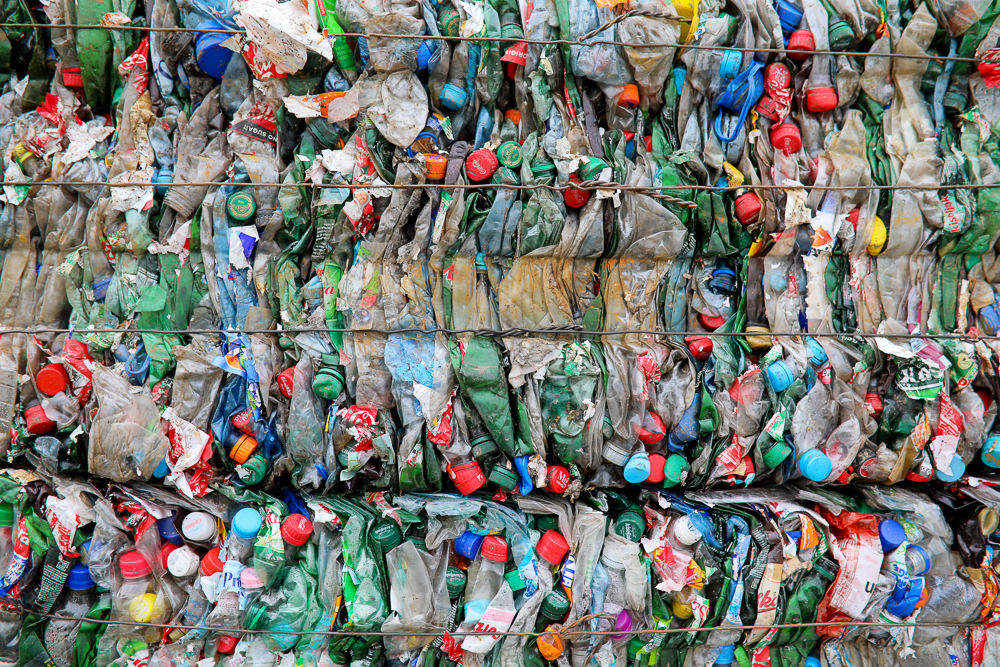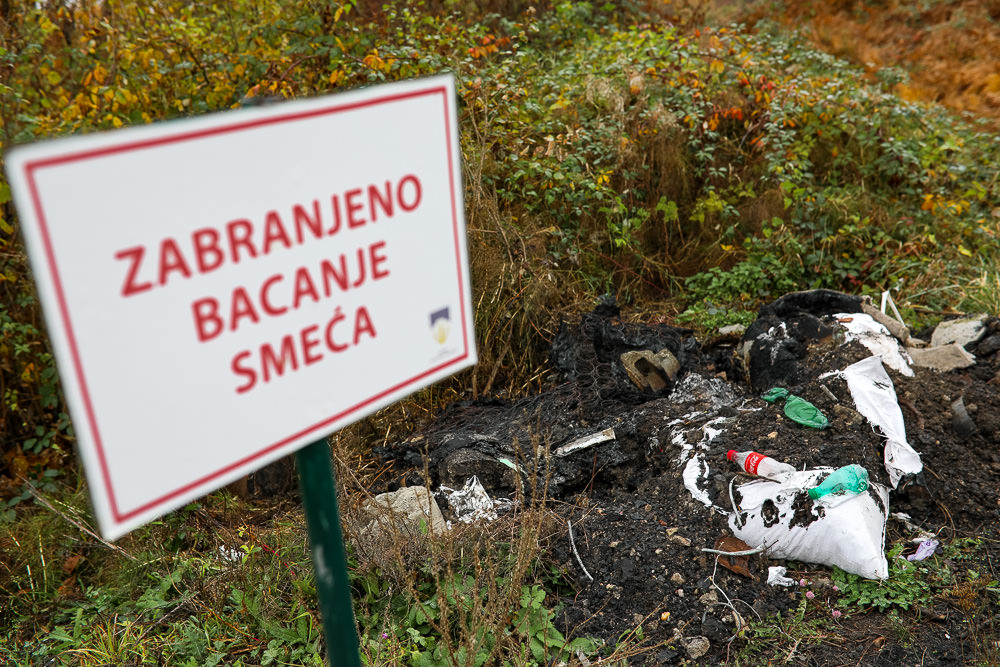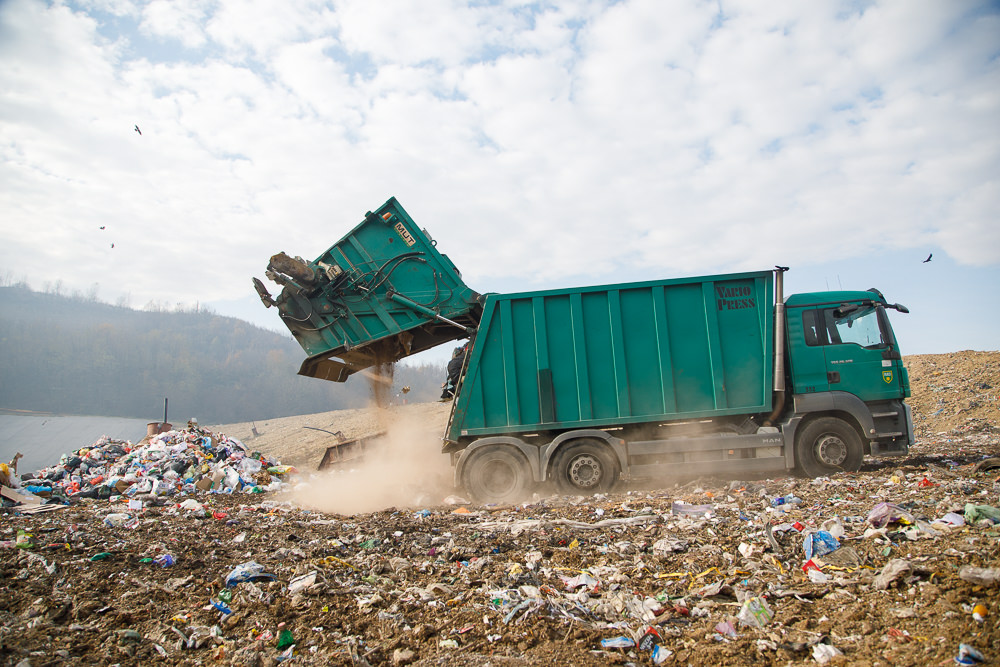Bosnia and Herzegovina faces many challenges, among them, disposing of waste on illegal landfills, the lack of an organised waste collection, the absence of a viable waste separation and recycling scheme, and low public awareness of the importance of waste separation at the household level.
In late 2019, BiH embarked on developing the Environmental Strategy and Action Plan (BiH ESAP 2030+), which will improve the state of the environment in BiH and help the progress of BiH on its path to EU membership. The strategy and action plan will cover seven EU environmental policy areas, including waste management.
Dr.sc. Irem Silajdžić and doc.dr.sc. Draženko Bjelić, speak about the present challenges and potential solutions in the waste management sector in BiH. They are both experts in BiH, and leading the efforts in this sector within the BiH ESAP 2030+.

What are the main challenges regarding waste management in BiH today?
BiH faces multiple challenges in the waste management sector that need to be addressed systematically.
First of all, waste collection in BiH is mainly the responsibility of local utility companies with local governments as their majority owners. Their equipment is dependable on local governments’ development status, which means that their equipment in most places is outworn. In addition, operational costs of the waste collection and disposal system are rather high, while the fees are not enough to provide for new investments.
The main waste disposal option available in BiH is landfilling of waste, and landfills are mostly non-compliant, and do not meet requirements for sanitary waste disposal, while by-products of waste disintegration end up directly in the environment. Many wild dumpsites, where municipal and construction waste is disposed in an uncontrolled manner, are situated in natural surroundings, and they spoil the landscape and people’s experience of the landscape.
Separate waste collection, separation and recycling has not yet come to full capacity in BiH, which increases the amount of waste disposed on landfills and thus worsens environmental pollution.
Inadequate and unreliable data on the quantity of generated waste and its composition damages the planning processes and occasionally results in the development of unviable plans. Other challenges include the lack of local and regional waste management plans, as well as lack of cooperation between the municipalities and cities on the development of regional sanitary landfills and sorting facilities.
And finally, public awareness is rather low in how the waste management system operates, its requirements, and general issues that pertain to the role of individuals in the system.
What are the possible impacts of the non-compliant landfills on the environment and the people?
Non-compliant landfills and unmanaged dumpsites, in addition to adverse visual effects, can threaten people’s health in many ways, through air, water, and soil pollution. Such pollution results from several stages of waste decomposition and fermentation, a process which generates so-called filtrates which leach to the soil, surface and groundwater, and/or biogas which emits into the air. These fumes are greenhouse gases which contribute to global warming. Methane in biogas on non-compliant landfills often causes wildfires, and waste combustion emits harmful matters into the environment. There is also a risk of explosion and collapse of the landfill body, which can cause material damages and loss of human life. In addition, people who live in the vicinity of non-compliant landfills are exposed to health and security risks, given the presence of possible carriers of diseases (flies, rodents, birds, and other animals).
How do we reorganize and improve the current waste disposal in a way that it is fair and inclusive for all affected social groups?
One of the problems we face in Bosnia and Herzegovina is the fact that access to waste collection services, including waste separation, is not universally secured to all the citizens. The method of calculating the service price currently does not take into account the amount of waste produced by the household. It is simply based on the number of household members or the square footage of the space. This method of calculating the price needs to be changed in order to instead be related to the amount of waste. This can stimulate citizens to reduce the amount of waste generated. In this regard, the next steps should focus on expanding the waste separation scheme at household level, which should enable recovery of useful materials from waste rather than discarding them on landfills. The implementation of the waste separation scheme should be accompanied by awareness raising campaigns and education of citizens from all social groups. They need to better understand the importance of waste separation and their individual contribution to environmental protection.

What are the main differences between today’s dominant linear model of economy and the circular model? What are the potential future trends for improving the waste sector in BiH and making it more circular?
A linear economy relies on a linear model where the natural resources are transformed into products and used until they are finally discarded as waste. Natural resources used for production under the principles of linear economy are not renewable. They adversely impact the environment throughout their life cycle, from the point of their extraction to emissions generated in the process of consuming these products, and finally when we discard them in the environment.
The linear economy model was the basis of industrial development. It has shown that sustainability of economic development and preservation of the environment requires a new model that will remedy the previous one’s weaknesses. Both the reference books and practice call this model circular economy. The circular economy model focuses on efforts to create products with a maximum content of recycled materials. Through this model we reduce consumption of natural resources, we reduce or eliminate their emissions in the consumption process and we enable reuse or recycling of the product to the greatest possible extent.
This model has been increasingly embraced in the most developed economies globally, but lately also in some of the major global companies. Circular economy has both economic and ecological effects. The economic effects include reduced costs through renewed use of recovered materials in the production process, creation of new jobs, energy savings and prolonged shelf life of products. The ecological effects include reduced waste generation, which again reduces unfavourable effects on the environment and contributes to the saving of resources.
How will the BiH ESAP 2030+ contribute to improvements of the sector in BiH?
BiH ESAP 2030+ will provide the authorities with the Environmental Strategy and Action plan with strategic goals and thematic objectives, and feasible, clearly defined, agreed, and adopted actions. This document will guide actions, policies and funds from both national and international sources which will translate into meaningful activities aimed at enhancing the waste management system, which will ultimately contribute to a better state of environment in BiH. BiH ESAP 2030+ will also help in further approximation of the legal and institutional frameworks with the EU regulations and policies. On a long-term basis, the project will improve the environment in BiH and support BiH on its path to EU membership.
Lastly, do you have any tips to the readers; what can they do to reduce their footprint in terms of waste? Are there ways for them to contribute to an overall better waste management?
Every citizen of BiH can immediately start with waste separation in their household. A majority of our municipalities have, at least in some areas, provided special containers for recyclables. Where such containers are not available, one can at least compost organic waste, which can be done both in gardens or in balconies.
In addition, there is something we can also do without any special equipment. We can prevent littering, including plastic bottles, cans, plastic bags and other types of packaging, wet tissues, cigarette stubs, and currently, as a result of the pandemic, also masks and disposable gloves. Citizens should be aware that this type of waste does not disintegrate in nature. The adequate disposal into bins helps reduce our ecological footprint and preserve natural values of which we are so proud.
More about the BiH Environmental strategy and Action Plan 2030+:
The primary goal of the BiH ESAP2030+ project is to support the authorities of BiH, FBiH, RS and BD in the ESAP 2030+ development. The ESAP 2030+ document will comprise environmental strategies and action plans for FBiH, RS and BD, and actions that will be taken at the level of BiH. On a long-term basis, the project will improve the environment in BiH and support BiH on its path to EU membership.
The contents of the BiH ESAP 2030+ will address the following EU seven areas of the Environmental Acquis: Water; Waste; Biodiversity and Nature Conservation; Air Quality, Climate Change and Energy, Chemical Safety and Noise; Sustainable Resource Management; and Environmental Management.
The BiH ESAP 2030+ project is implemented by Stockholm Environment Institute (SEI) with the support of the Embassy of Sweden in BiH.
More details about the BiH ESAP 2030+ Project available at www.esap.ba.
The interview was initially published on the Radiosarajevo.ba portal on February 2, 2021.







